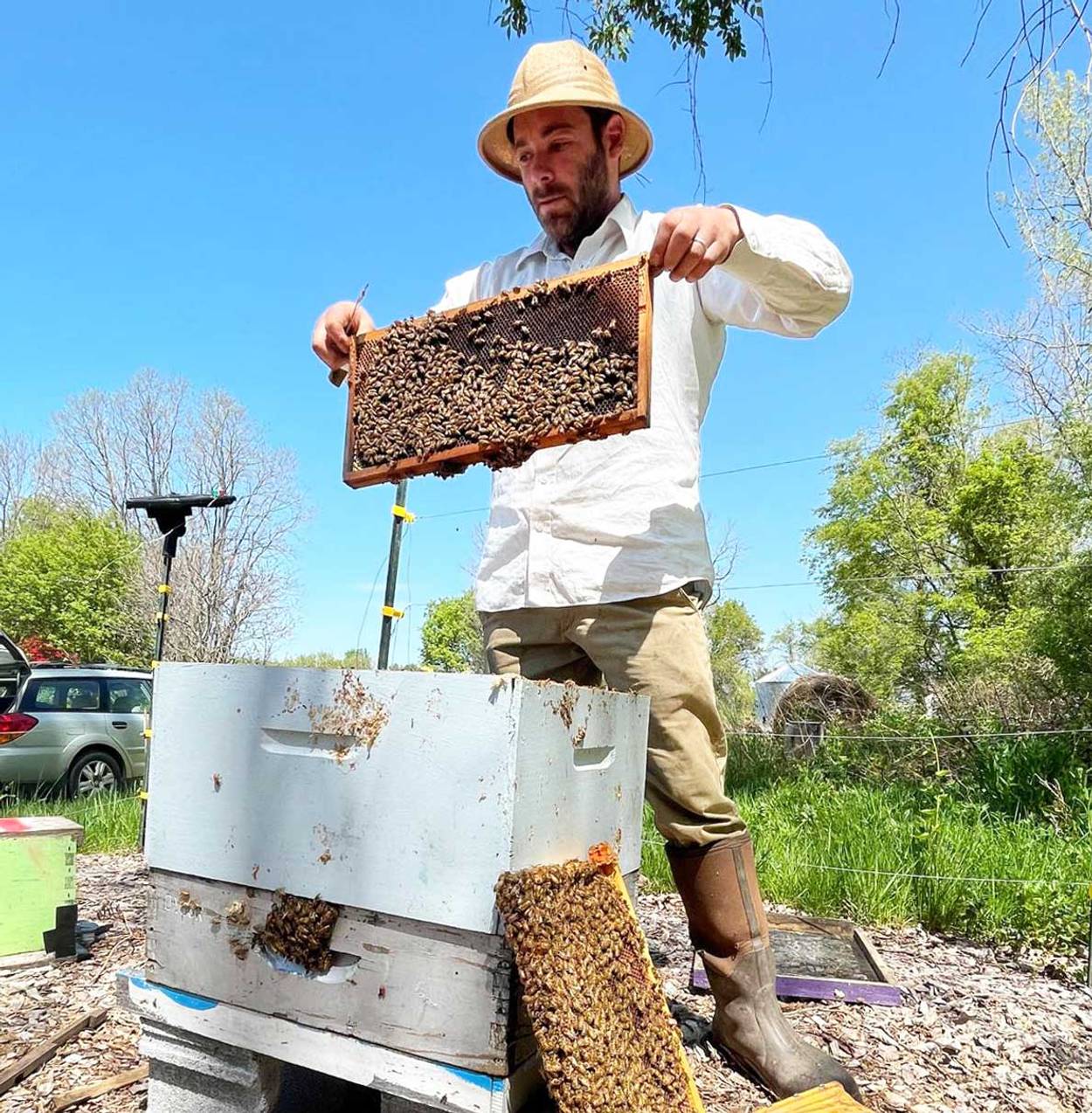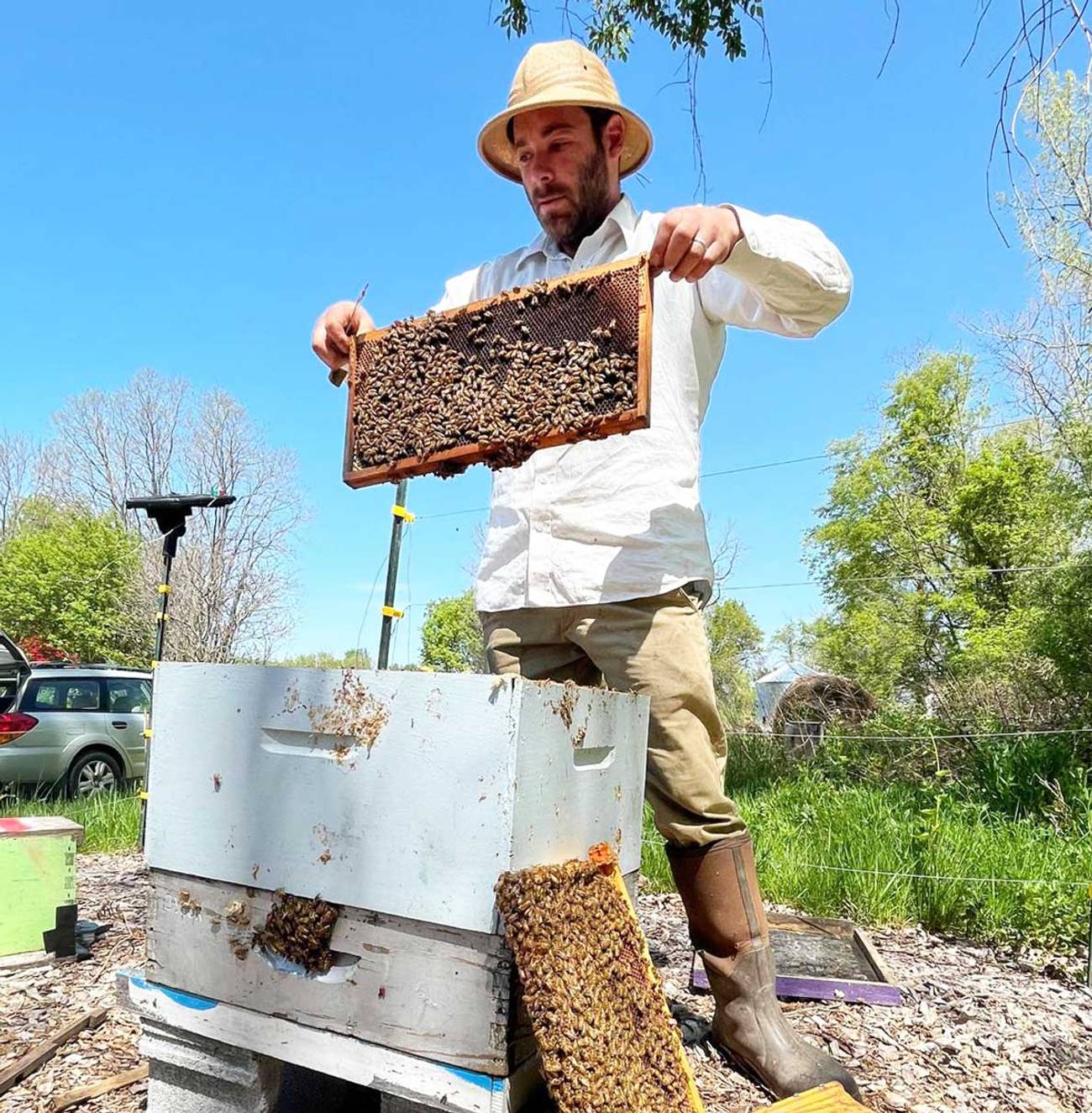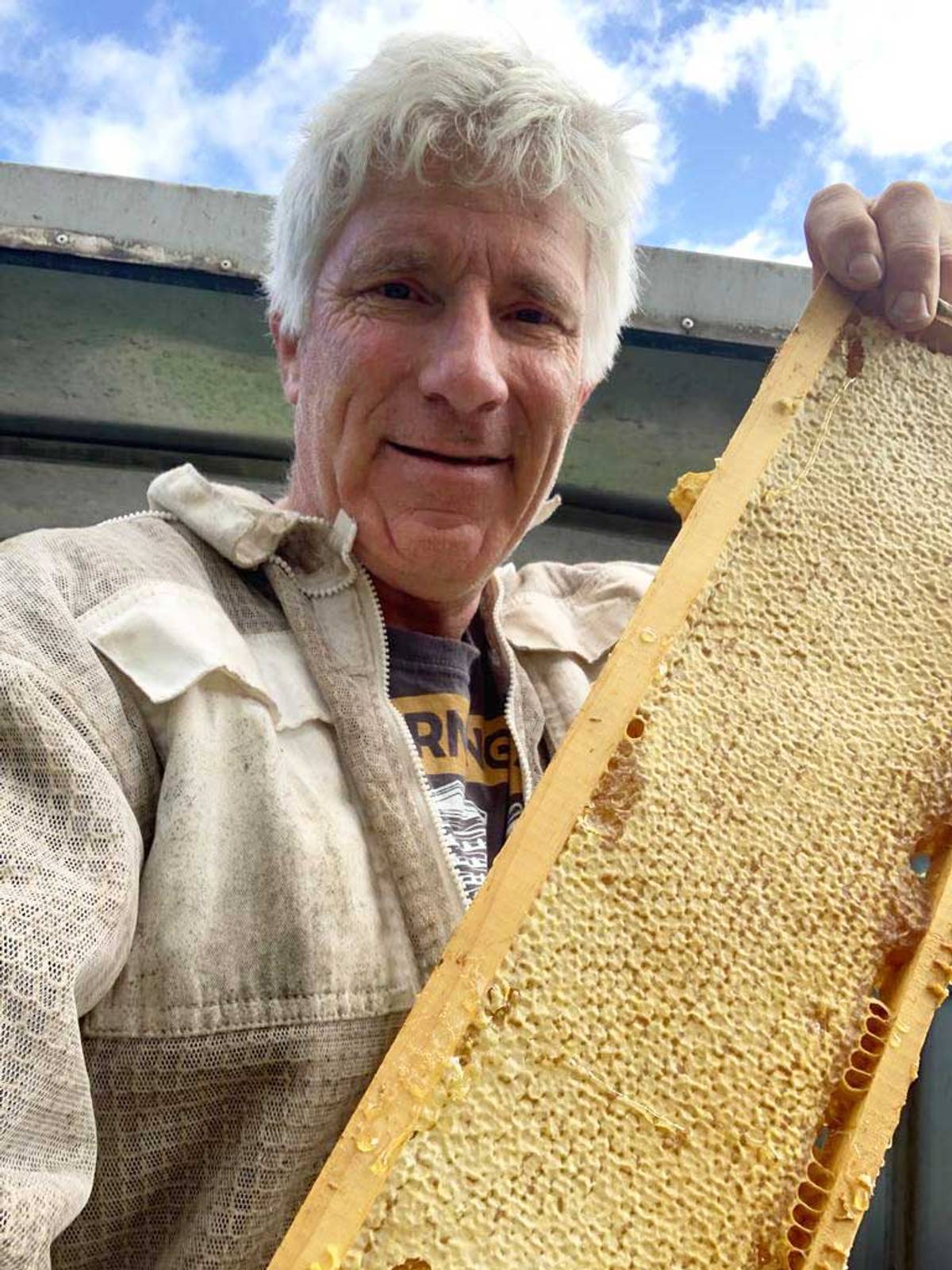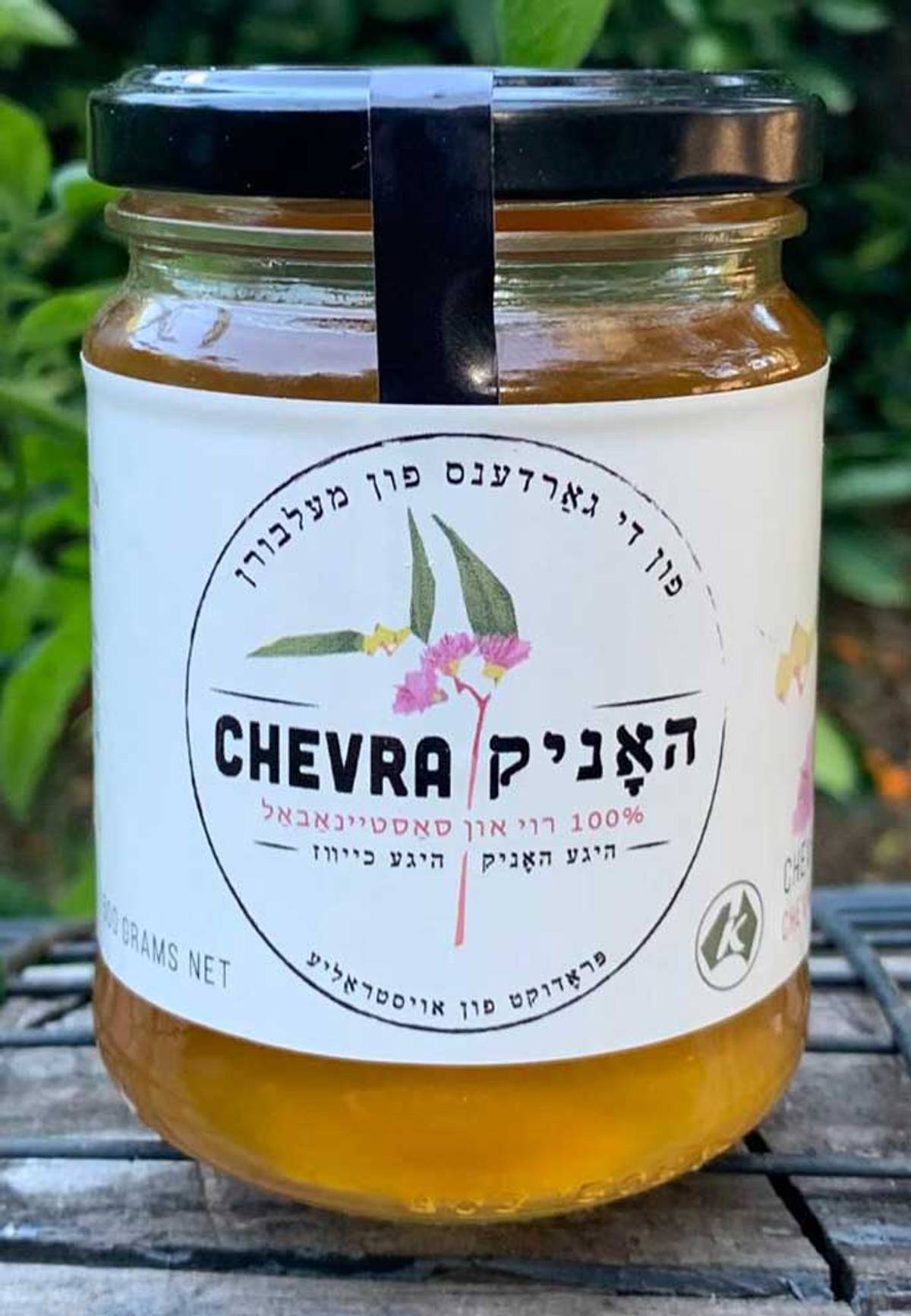Keeping Beekeeping in the Family
Jonathan Landes and his son Asher both keep bees, and help others to do the same—whether it’s in the Berkshires or Melbourne, Australia

Courtesy Asher Landes

Courtesy Asher Landes

Courtesy Asher Landes

Courtesy Asher Landes
About a decade ago, Jonathan Landes, a father of three from Melbourne, Australia, took a trip to visit his son in the U.S. that changed his life.
“My son Asher got into beekeeping 10 years ago,” Landes recalled. “We’d gone over [to the U.S.] to visit him and he was working on a rooftop farm. He told me, ‘Dad, you’ve got to get into it.’”
After watching his son create buzzing colonies of honeybees on Staten Island, Landes was hooked. Upon his return to Melbourne a few weeks later, Landes gathered up four of his lifelong friends and founded a small urban beekeeping company called Chevra Honey, named for the Hebrew and Yiddish word for a society or close-knit group.
“There were five of us, a chevra,” he said. “We knew each other from [decades back] in youth movement. We thought the name was quite cute. And it stuck.”
The idea was simple: In a city like Melbourne, where most people tend to live in houses with ample space and backyards, the chevra would help to set up beehives to encourage urban beekeeping.
The hives Landes sets up are made of good quality wood. Successful placement in the urban environment requires significant considerations.
“You say hello and go meet the person [who wants to host the hive]. You do an evaluation of the garden and neighborhood. You have to ask questions, such as if there is anyone who is allergic to bees. You ask who the usual visitors to the house are, or if they have pets,” he said, listing the checklist he runs through with prospective hosts. “It’s not like a cat or another pet. People can get stressed about bees. You must be able to manage the colony.”
To have a successful hive, the bees should not be too crowded and the weather has to be right. Bees prefer dry heat, and if it is too windy and rainy, it can affect the amount of honey produced by a hive.
Today, a decade on, Chevra Honey manages around 40 hives around Melbourne that produce high quality, organic, kosher-certified local honey. On average, each hive produces around 22 pounds of honey per season.

Courtesy Jonathan Landes
“Beekeeping suits me,” said Landes. “I really enjoy it. People are so nice. They are very engaged in making the urban environment healthy with bees. It’s a really good gig.”
Every spring, Landes starts to make his rounds of all the hives he manages. The honey produced by these hives is stocked in a range of local groceries including kosher stores, high-end organic groceries, and local delis. Landes also operates a small “honesty shop” from his home, where passersby can purchase the honey-based products produced from the hives he manages, including organic honeys, beeswax lip balms, and giftboxes.
“The honey that is in the suburbs is a floral mixture, a midrange honey with midrange colors like a really light amber to dark brown,” he said. “It’s an amalgam of all the trees and shrubs in the suburbs. If you were to take your beehives where there are state forests where there are only red river gum growing by the river, the honey will be red river gum honey. That’s how you can name it. But in the suburbs, where honey comes from lots of different sources, it’s an amalgam of different nectars.”
By far the busiest time of the year for Chevra Honey is the lead up to Rosh Hashanah, where Landes collects honey from all the urban beehives he manages. This honey is then packaged and sold for the holiday. In addition to supplying shops and corporate orders, Landes supplies two local synagogues with honey, and he helps his local rabbi jar honey.
The meaning he finds in beekeeping is long lasting.
“Initially it was about bees and honey,” he said. “During COVID it was a nice meeting point for people. The other Sunday we had a gathering, for 30 people who carry our hives. People feel comfortable that we are doing this and that its part of the community, there is a sense of honesty about it. I’m working in this little area; it gives me some sort of value in what I do. It’s small stuff, but for me it’s meaningful. I think that plays a role.”
Landes’ son, whose full name is Asher Landes Silverwolff, chuckled when he recalled how his dad got hooked on keeping bees. “I started it,” he said. “He came and visited me in Staten Island and then he started his Chevra Honey.”
Landes Silverwolff is still into urban beekeeping today, and lives with his wife and child at the Isabella Freedman Jewish Retreat Center in the Berkshires, where he runs the Bee Resonance Project.
These days, he makes his livelihood from the bees.
“We came up to the Berkshires to do a farming apprenticeship. To cultivate our relationship with the earth. To learn how to do urban farming,” he said. “I was done with the city life. And ready to breathe the fresh air and cultivate the earth.”
As part of his new business, he manages around 100 hives in the area.

Courtesy Jonathan Landes
“We manage hives for private residents for farms and organizations,” said Landes Silverwolff. “So, folks will hire us to install an apiary. I will take care of it and be responsible for it. They get the benefit of the honey. They get the surplus of honey and the ecological pollination and being part of the greater hive. It’s a movement standing for the bees.”
Landes Silverwolff is proud of the honey he cultivates through the bees he cares for.
“Its local ethical well-cared-for honey. It’s real. It tastes real,” he said. “When you buy honey in the supermarket, it’s liquid, it’s cooked. It gets pasteurized and you lose all the beneficial bacteria. The medicine. My honey tastes like the flowers of the season and the region.”
Like his dad, his busy time will take place around Rosh Hashanah, and he is keen to continue educating community about the importance of caring for bees.
“At the moment, it’s the most vulnerable time in our recent relationship with the bees,” he said. “There is more environmental pressure on the bees. Whether its pollution, air pollution, water pollution, exposure to pesticides, insecticides, neonicotinoids that get washed into our waterways. There has never been more pressure. Folks can hire us to install and take care of bees. That’s what we are doing. It’s really beautiful that I can support the hives. They are my hives. My community.”
Nomi Kaltmann is Tablet magazine’s Australian correspondent. Follow her on Twitter @NomiKal.